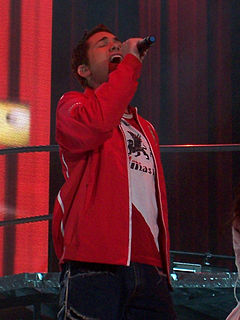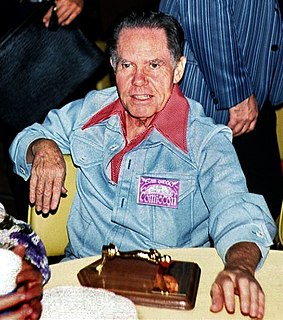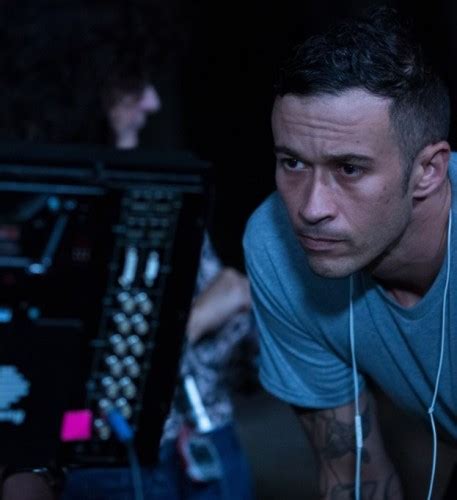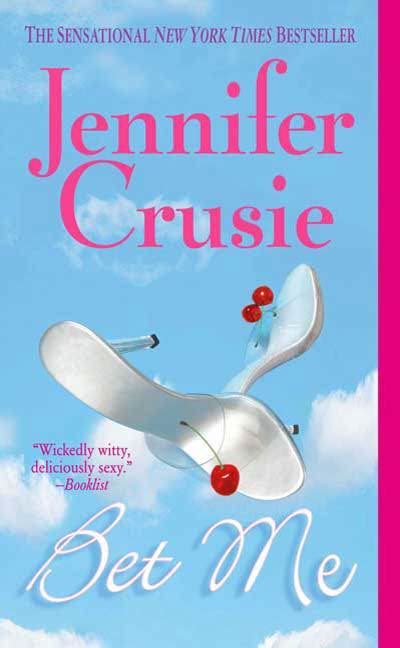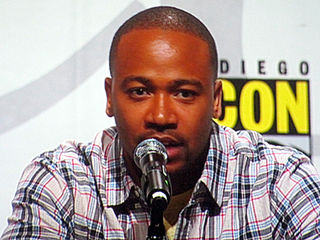A Quote by Rob Riggle
I always try to stick to the script because I want to respect the writers, and I want to respect the director. But if the director and my fellow actors are okay with me playing with it a little bit, then I definitely want to play with it. I definitely want to do that, because I tend to... when I put things in my own words, it comes out way better. It flows naturally, it just feels better. I can put some weight into the words. Even in comedy, it just comes better.
Related Quotes
Business is very personal. For me, everything is extremely personal. With actors, the fact that I write helps, because when you say to an actor "Oh I want you to do it a little bit more ...," without saying what you want more of, then the actor doesn't know what to do. But if you can put into words exactly what you want, then the experience of writing is helpful with that.
I've had friends who have come away who've said, "I shouldn't have become such close friends with the director." You always want to get on with the director, but I personally prefer a relationship where you respect them - you get on really well with them, but they're boss, as it were. It's about trusting your director, for better or for worse. They're the one's seeing what's coming out on the monitors, so you have to try and trust what they say.
I want you to understand the words. I want you taste the words. I want you to love the words. Because the words are important. But they're only words. You leave them on the paper and you take the thoughts and put them into your mind and then you as an actor recreate them, as if the thoughts had suddenly occurred to you.
I have fashion designers that I definitely respect. After working for a few years in the industry, you want to branch out and do your own thing and I think that's something that has always been important to me is strengthening the brand and just sticking to "this is who we are, this is our identity, this is who we're going to be". I definitely respect other designers but I don't necessarily have one that I look up to.
Part of why I wanted to produce was because I wanted the opportunity to work on projects I want to see. As a writer and as a director, I'm very specific about the kinds of things that I want to do. The opportunity that producing has given me is that by working with different writers and trying to get their movies made, or developing their script, or making their movies, every time I'm doing it, I'm learning and then bringing something to my own work. I like to think that there's a little bit of back and forth that goes on.
I'm trying to avoid any more asshole roles, at least for a little bit. The main criteria for me when choosing a project is a good director. I just want to work with these guys that I admire because I do want to direct my own films one day, and I want to pick their brains to see what their process is like, and see what I can take from that.
You stay with the foundation and then you just try different things because you don't know how the director will cut it and you want to give him, what will work, and you want to give him some options, give yourself some options, discover some things when you start to play. That's what we do; we get paid to play.
The producer can put something together, package it, oversee it, give input. I'm the kind of producer that likes to take a back seat and let the director run with it. If he needs me, I'm there for him. As a director, I like to have the producer there with me. As a producer, I don't want to be there because I happen to be a director first and foremost, I don't want to "that guy."
We live in this society where you must constantly be reinventing yourself. The big question is what are you doing next. The only thing they want is composed of these three elements: They want you to do it the exact same way because they want more of it; but they want it to be totally different; and they want it to be better. That's all you have to do. You just have to do something that's exactly the same, totally different, and better.




